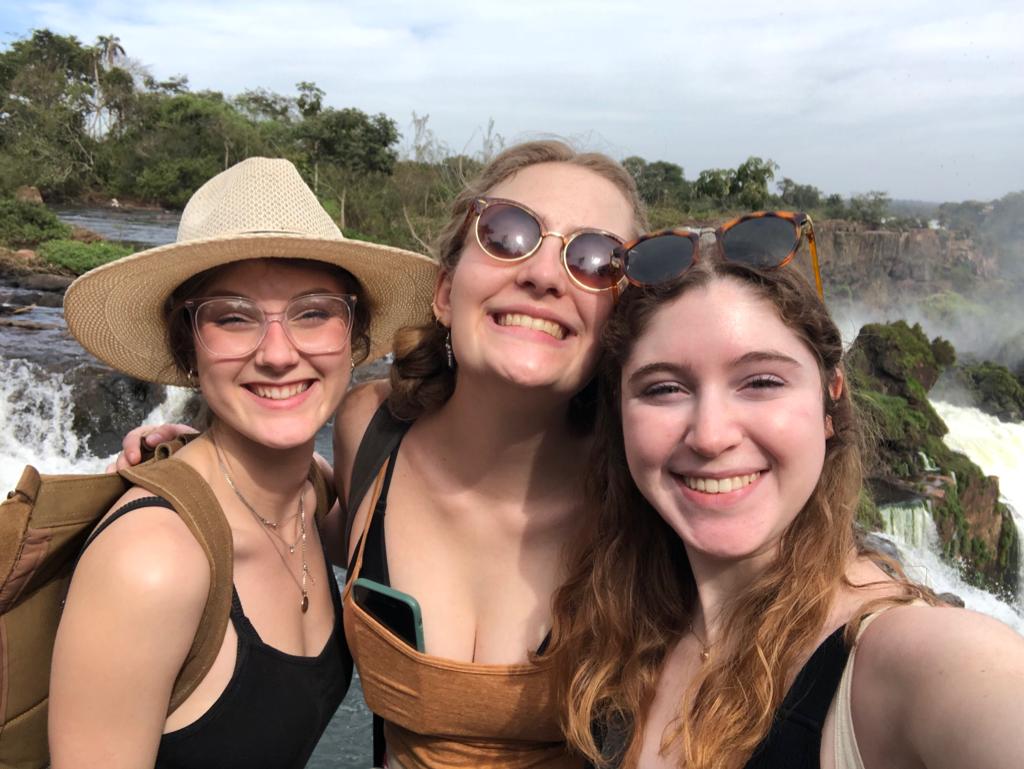
Students planning their study abroad program must make the necessary arrangements very early in the semester immediately preceding the study-abroad semester (or year). Study-abroad advising is more complicated than regular academic advising and involves coordination among several offices: the Croft Institute, the Department of Modern Languages, and the Study Abroad Office.
Please follow the four steps outlined below, in the order in which they appear, to gain approval for your study abroad program.
1. Schedule an appointment with your international studies foreign-language advisor. The international studies foreign-language advisors in the Department of Modern Languages are:
Your language advisor will tell you which programs in your region are most appropriate for international studies majors and what you can expect from them. It is important that you talk to your language advisor before you go to the Study Abroad Office.
2. Visit the Study Abroad Office in Martindale Hall to choose a study abroad program based on the input from your language advisor and begin the formal process of applying for it.
Which program you choose will depend on a number of factors:
Keep in mind that as an international studies major your study-abroad experience should be structured in such a way that you accomplish two goals: (a) substantially improve your foreign language proficiency and (b) earn academic credit hours counting toward completion of the International Studies major (and, if you have one, your second major and/or minor).
You must apply for your study abroad program through the U.M. Study Abroad Office, pay their fees, and abide by their policies if you want any of the credit you receive while abroad to count for your major and your study abroad experience to count for the international studies semester abroad.
3. Next, return to your language advisor and have him or her approve the program and specifically the language classes you plan to take while you are abroad. Approvals are done by email now, and he or she will send those approvals to the Study Abroad Office.
Dr. Gowan handles study abroad advising for the international studies major. You can often obtain course descriptions from brochures and other program information available on websites and from the Study Abroad office. When you have chosen which courses you would like approved for international studies credit, send him an email with the courses and the descriptions or syllabuses. He will let you know if you need to meet with him before he approves them.
Be sure to choose plenty of alternate classes, because you may change your mind once you get abroad, or the courses you initially chose may not be taught.
Please remember that in order to qualify for standing as a full-time student you must select at least twelve (12) credit hours of course work each semester at your particular study-abroad program. You select those hours and the courses in consultation with your advisors, but typically six hours will be in foreign-language classes while the other six will be content courses counting toward the International Studies major. Ideally, the content courses will also be taught in the foreign language you are studying, but depending on your level of proficiency and the particular program you selected the content courses may be in English.
When you register for classes abroad, do not worry if the courses available to you do not match the ones you had approved. Contact Dr. Gowan to find out which classes could count for which requirements. If you take classes that have not been approved, your language advisor and Dr. Gowan can approve them by email. Be sure to keep copies of your syllabuses, notes, classwork, and other materials relevant to the courses you take while abroad in case there are any issues with the approval process and for your own future reference.
4. Do not forget that you have to take Inst 110: Intercultural Communications Pre-Departure before you study abroad. You also should take Inst 381: Research Methods for International Studies Majors before you go abroad.
While You Are Abroad
Studying abroad for a semester or a year will be the experience of a lifetime. Try to make the most of it. Spend as much time speaking the language you are trying to learn as possible. Spend as little time speaking English with other Americans or foreigners as possible. You are not there primarily to be a tourist. There will be time for traveling and site-seeing, but study abroad is an academic experience, not a vacation. Remember that you are there to learn a new language, immerse yourself in a new culture, and take classes that are not available at the University of Mississippi. Get involved in extracurricular activities - whether athletic, cultural, or service - that allow you to interact with people from the country where you are studying.

Jenna Ebel in Spain

Preston Kennedy in Italy

Natalie Gault, Wendy Gardner, and Gabie Goulet in Uruguay

Adam Koussih in Morocco